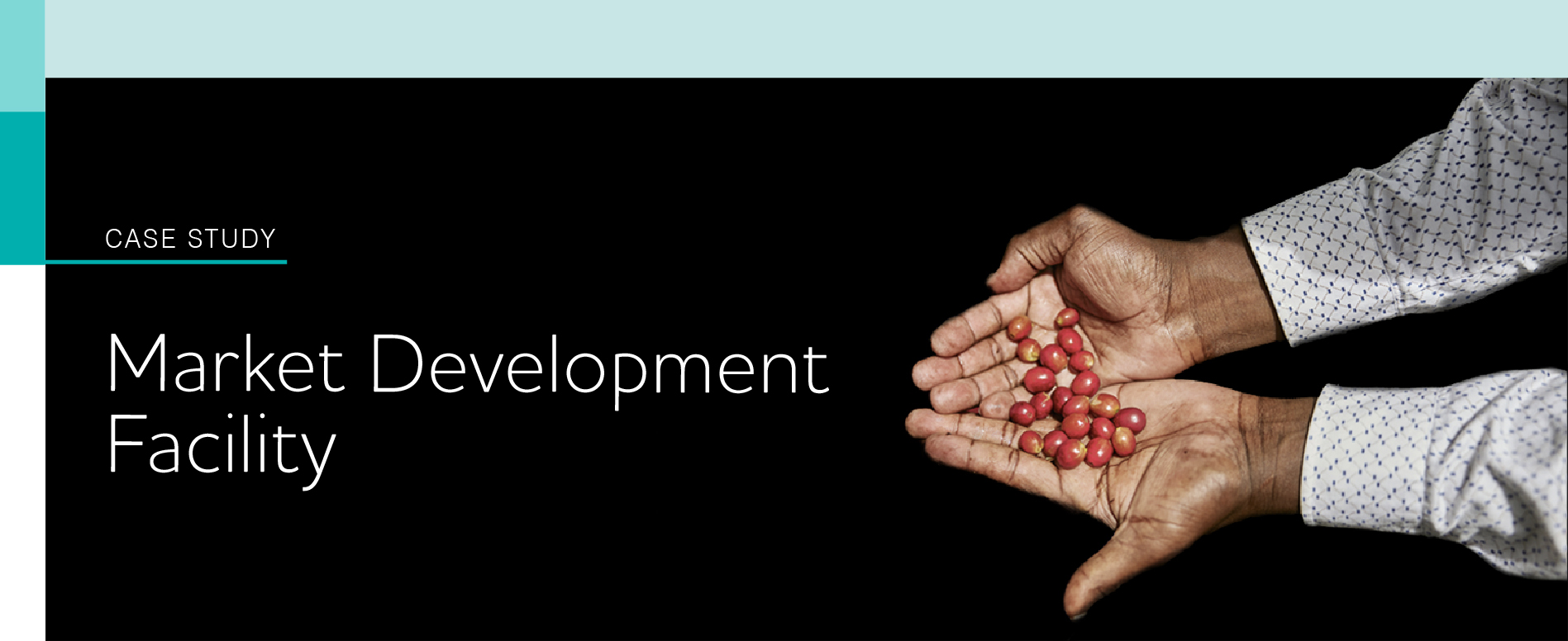Case Studies

$2,807,417
Investment Catalysed
7,878
People Reached
6,092
Individuals Reporting Increased Incomes
59
Partnerships Established
57
Organisations Supported
The Market Development Facility (MDF), an Australian Government-funded multi-country initiative, works to create jobs and drive increased income for vulnerable women and men in rural and urban areas across the Indo-Pacific region. By connecting individuals, businesses, governments, and NGOs with each other and markets across the region, MDF identifies and grows commercial opportunities that are profitable, scalable, and deliver social and environmental value.
Partnerships are key to MDF’s success.
The team partners with a variety of businesses willing and able to invest in changes that improve business practices. These changes could include offering more affordable products and services, or expanding distribution. Working together, MDF and partners develop a ‘partnership agreement’ to introduce these changes to the market.
Because each intervention becomes a part of the partner’s core business model, it’s commercially sustainable in the long-term, meaning that our impact lasts long after MDF comes to an end.
So far, MDF has leveraged over $25.7 million in private sector investment, benefiting 444,152 people across the Asia Pacific. In 2023 alone, the project has established 57 partnerships, created 697 new jobs and generated $166 Million in additional income for adults across Fiji, Timor-Leste, Papua New Guinea, Sri Lanka, Pakistan, Samoa, Vanuatu, and Tonga.
In Sri Lanka, MDF partnered with private sector investors and companies to uplift the coffee sector, focusing on increasing coffee production, enhancing quality, and fostering industry coordination. Despite Sri Lanka’s optimal tropical climate for coffee, the crop was a minor income source for most smallholders. In addition, lack of knowledge and incentives were barriers hampering their success. For MDF, the goal was to establish Sri Lanka as a specialty coffee destination while also empowering smallholder farmers.
MDF supported coffee processers and provided them with the technical expertise and training necessary to improve the quality of their coffee. To strengthen industry coordination, MDF helped establish Sri Lanka’s first ever national coffee association.
In 2023, the project’s work in Sri Lanka alone has benefited 3,200 people, largely driven by investments in the specialty coffee portfolio.
In Fiji, tourism is a primary revenue generator for the island nation. However, migration, hotel capacity constraints, and high prices are threats to service quality and competitiveness. In addition, the late reopening of more affordable tourist destinations in Southeast Asia post-COVID-19, which offer diversified tourism experiences, meant that Fiji’s tourism industry needed to re-strategise.
MDF partnered with Twenty31, a tourism and destination management consulting firm, to provide industry stakeholders in Fiji with the latest tourism data and trends from key source markets. This information was used to re-focus Fiji’s national tourism policy and marketing efforts. To diversify Fiji’s tourism offerings and provide more local benefits from tourism, MDF scoped opportunities in community-based tourism in collaboration with the iTaukei Trust Fund Board and the Ministry of iTaukei Affairs.
In 2023, tourism was up in Fiji, with 929,740 visitors resulting in tourism earnings over AU$1.16 billion.
MDF’s work in Asia Pacific is evidence of how partnerships can generate impact that’s greater than the sum of its parts. By collaborating with businesses to de-risk investment, piloting solutions, and scaling new market models, MDF fosters sustainable and inclusive economic growth, bolstering industries and improving lives.
